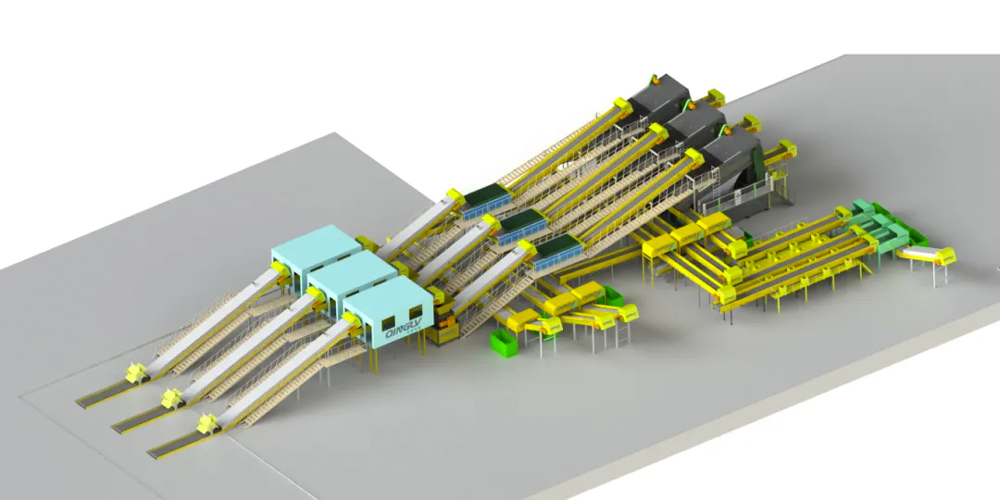 Time:2024-12-10
Time:2024-12-10
 Source:青绿环境
Source:青绿环境
Domestic Waste Transfer Stations play a pivotal role in the urban waste management system, serving as an essential hub connecting waste collection and final disposal. At the transfer station, the application of advanced domestic waste processing production lines can achieve scientific waste treatment.

When waste arrives at the transfer station, it is first dumped on a large unloading platform. Then, a loader evenly transports the waste to the front end of the sorting production line. During the sorting phase, a combination of manual and mechanical methods is used. Staff will first pick out larger recyclables, such as furniture and large plastic containers, while mechanical sorting equipment uses magnetic separators to extract metal items, such as cans and nails, which are then collected and sent to recycling enterprises for reprocessing.
Next, the waste that has undergone preliminary sorting enters a crushing device, where it is crushed into smaller particles, facilitating subsequent treatment processes. After crushing, the waste enters a biological treatment unit, where some organic waste undergoes fermentation under specific microbial conditions, converting into organic fertilizer or biogas. The produced biogas can be used as an energy source, such as for powering station equipment or generating electricity for the grid.
The remaining waste is then conveyed to incineration or landfill treatment lines. For incineration, waste is burned at high temperatures in an incinerator, and the heat generated is converted into electricity or heat for recovery and utilization. The residual ash from incineration is then disposed of in landfills. If landfilling is used, waste is transported to designated landfill sites, where impermeable layers are laid to prevent leachate from contaminating soil and groundwater. The generated leachate is collected and treated specifically, and landfill gas is collected and utilized or properly managed to reduce environmental impact.
Through the application of this series of domestic waste processing production lines, domestic waste transfer stations can sort and treat waste, recover resources, convert energy, and safely dispose of it in the end. This minimizes the environmental harm caused by waste and achieves effective recycling and utilization of resources, laying a solid foundation for the green development and sustainable development of cities.













 Prev
Prev











